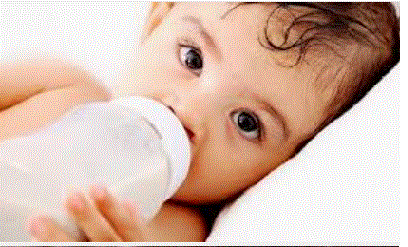Research | Global Health | Global

Plastic has long been a major source of pollution in landfills and in oceans, especially as it degrades into pieces smaller than 5 millimeters, termed “microplastics.” Experimental studies have shown that these particles and the cocktail of chemicals they carry can wreak havoc on physiology, reproduction, development, and behavior in a number of nonhuman species.
Scientists have found evidence that humans also drink, eat, and inhale tens of thousands of microplastics each year, and a study published today (October 19) in Nature Food estimates that babies may be ingesting up to 16 million microplastic particles per liter of baby formula prepared using a polypropylene bottle.
In our example, the microplastics are generated by the utensils you’re using during the food preparation process. There’s an immediacy to the presence of microplastics, and that’s a first. —John Boland, Trinity College Dublin
The researchers followed the World Health Organization’s protocol for preparing baby formula by sterilizing polypropylene baby bottles, air-drying them, and then pouring in water heated to 70°C. After shaking the bottles for a minute, they filtered the liquid and analyzed it under a microscope, finding millions of microplastic particles, whether they used actual baby formula, deionized water, or tap water.
The authors of the study note that there are no known adverse health effects of microplastics in humans, but they recommend that parents use an alternate procedure to minimize the number of microplastics their babies ingest. The Scientist spoke with John Boland, a chemist at Trinity College Dublin and an author of the new study, about the result’s most pressing takeaways.
More details can be found at : https://www.the-scientist.com/news-opinion/baby-bottles-can-shed-millions-of-microplastic-particles-study-68058

